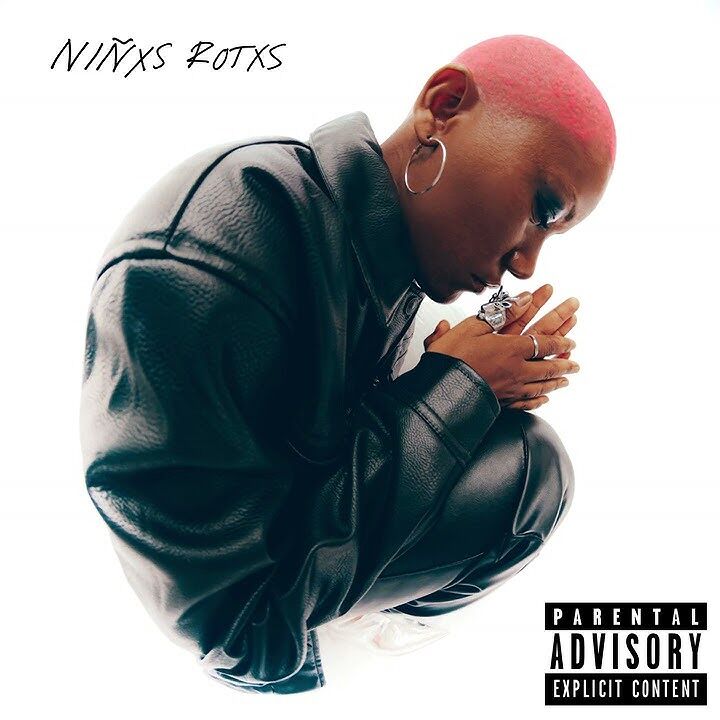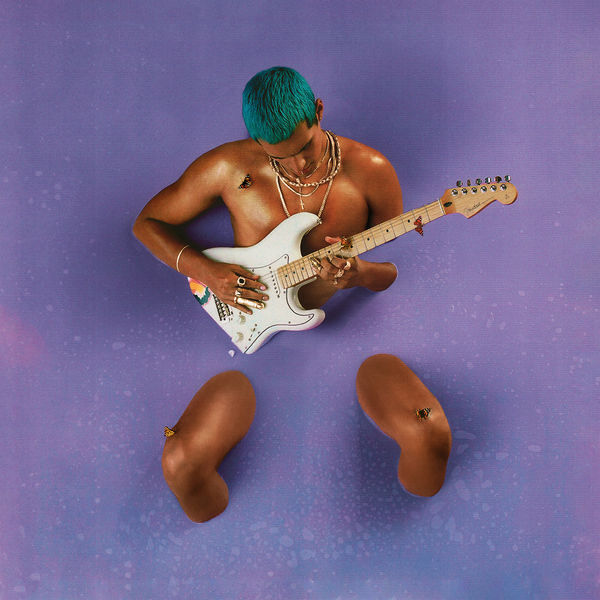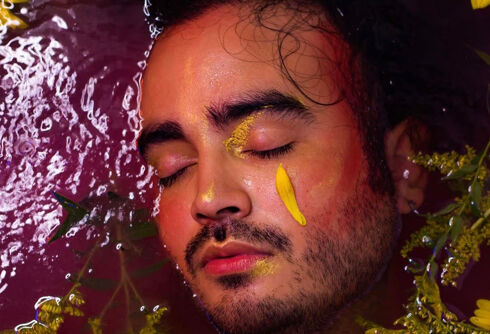For American audiences unfamiliar with native Mexican singer and songwriter Juan Gabriel, it’s hard to convey the depth of feeling and goodwill reserved for the extravagant and remarkably prolific entertainer whose unexpected death in 2016 at age 66 shocked the Spanish-speaking world and devasted his native country’s fans.
Known as El Divo de Juarez (The male diva Juarez), he appealed to all ages in every strata of society with his hardscrabble backstory and unbridled romanticism, despite the fact — in a place where machismo defines the male and boyhood experience — he was unapologetically flamboyant.
Related:
These 5 young queer Latinx influencers are stylishly slaying the internet
Whether you like fierce fashions or personal politics, these Hispanics aren’t holding back.
And yet Gabriel never exactly came out. His closest public acknowledgment was made in coy answers to interviewers late in life questioning his sexuality.
Never Miss a Beat
Subscribe to our newsletter to stay ahead of the latest LGBTQ+ political news and insights.
“Lo que se ve no se pregunta,” he’d respond, which translates loosely to, “What one sees doesn’t have to be questioned.” Gabriel’s audience saw “what one sees”, and was complicit in keeping it an open secret. It was a sign of respect.
While queer Hispanic singers and musicians today don’t face the same tyranny of machismo that Gabriel did growing up, they do share that same deep respect for him and his unparalleled musicianship: He sold over 40 million albums and is credited with composing over 1,800 songs performed by more than 1,500 artists worldwide.
He also paved the way for modern-day queer Hispanic musicians to express their own uncensored selves. In December, gender-fluid ally and Puerto Rican rapper Bad Bunny played Gabriel’s greatest hit “Querida” for the audience while closing out his most recent tour in Mexico City. The entire stadium sang the song word for word, rendering goosebumps and memories of a “forever moment.”
Gabriel opened doors for Hispanic artists everywhere, and today they are striding through proudly. Here are seven young queer Hispanic singers and musicians who have made the legendary artistic legacy of El Divo as their very own.
Pablo Alborán

Pablo Alborán came out of the gate hot.
The Spanish musician and singer-songwriter, 34, rose to fame on YouTube. There, he sang his original, passionate love songs at home to his own flamenco-style accompaniment on guitar, and became a viral sensation. He was nominated for Best New Artist at the 2011 Latin Grammys before he was even signed to a label.
The self-titled Pablo Alborán collection was certified platinum six times and became the top-selling album of 2011 in Spain. In 2020, as the pandemic focused priorities around the planet, he came out as gay.
“Today, I want my voice to be louder and for it to have more value and weight. I’m here to tell you that I am homosexual and it’s okay,” Alborán said in a video posted to Instagram. “Life goes on, everything will remain the same, but I’m going to be a little happier than I already am.”
Mabiland

Afro-Colombian lesbian Mabely Largacha, better known as Mabiland, broke out in 2018 as a 24-year-old singing to the woman she loved in the heartbreaking track “Cuánto Más” (or “How much more”).
The singer-songwriter’s distinctive mix of hip-hop, R&B, trap, and reggaeton provides an aural sampling of her native Quibdó, the capital of the Chocó region in Colombia which has a predominantly Afro-Colombian population.
In the male-dominated Latin hip-hop genre, Mabiland stands proudly at the intersection of her own identity as a Black, Colombian, queer woman.
Villano Antillano

Go ahead, call her “pájara.”
Transgender Puerto Rican artist Villano Antillano reclaimed the derogatory Spanish language term (it means something like “sneaky b**ch”, but worse) on her single of the same name in 2021. The queer trap anthem turned that and other offensive terms upside down in a head-turning video that showed Antillano swapping genders and made viewers of all sexual persuasions hot for the reggaeton and trap trailblazer.
The single and her debut album “La Sustancia X” earned Antillano a Premio lo Nuestro nomination for Best New Artist the same year.
It wasn’t her first song on offense, though. In 2018, Antillano broke out with a viral anti-homophobia tiraera, or diss track, called “Pato Hasta La Muerte,” penned to a rapper that used a queer slur.
“I’m not a role model, I’m a role villain,” Antillano has said.
Anitta

Already a veteran among Latin-American voices at 30, Brazilian-born Anitta broke out internationally in 2022 with her fifth album, Versions of Me, and her biggest single to date, “Envolver.” The song reached number 3 on the Hot Latin Songs chart and cracked the Hot 100 chart at number 70.
The video, which she directed, went viral on TikTok in direct proportion to her provocative baile (dance). The trilingual artist weaves Portuguese, Spanish, and English through Versions of Me, which also includes the funk carioca banger — and bisexual anthem — “Me Gusta,” featuring Cardi B.
In May, Anitta attended her third Met Gala, representing Marc Jacobs, and co-headlined LA Pride in the Park this summer alongside LGBTQ+ ally Christina Aguilera.
Omar Apollo

For a long time, Mexican-American artist Omar Apollo, who grew up in conservative Indiana, wasn’t really sure about his sexuality. “I was 17 when it really hit me,” he said earlier this year in The New York Times Style Magazine, “and I remember I was in the shower like, ‘Damn, that’s crazy.’”
As the 26-year-old embraced his Latino roots, his music became a refuge where he could be openly queer, like on his dreamy track “Beauty Boy.”
For a couple of years, he just dropped all the pronouns out of his songs, leaving the gender of his affections open-ended.
But in 2022, Apollo released his long-awaited debut album, Ivory, and was explicit about his desires. In “Invincible” with Daniel Caesar, he calls his perfect guy a “Latin boy / Frida Kahlo brow.” In the ranchera-infused ballad “En El Olvido,” he says goodbye to a boy who’s done him wrong.
Apollo told NPR last year, “I feel like in the beginning, I was trying to keep the mystique. But I don’t even care anymore. Now I’m just like, ‘I’m very gay.'”
María Becerra

Argentina’s María Becerra became a YouTube sensation at age 12 and never looked back. In 2019, she released her hip-hop/urban pop debut EP, 222, and shared beats with the world that expressed her attraction to another woman. The album also made a convincing argument that the object of her desire should feel the same way about her.
“I know you’re tired of him / In the nights, you dream about this girl,” Becerra sings in “Dime Como Hago” (or “Tell Me How I Do”).
With the release of her debut album Animal, the bisexual Becerra, 23, picked up a Latin Grammy Award nomination for Best New Artist, and earned the attention of Colombian singer J Balvin, who recruited her for the global hit “Qué Más Pues” (“What Else Then”).
“Hasta Los Dientes” (“To the teeth”) paired Becerra with Cuban-American singer Camila Cabello for some fun, frothy drag looks, and candy-colored camp in a wildly-popular video.
Her personal coming out process wasn’t like a spectacular music video, though.
“When I understood and accepted that I also liked girls, that was a difficult time,” Becerra told MTV News. “There was a lot of confusion and prejudice, and I had to think about how my family would take it. It was something very heavy that marked my life.”
Georgel

Gay Mexican-American singer-songwriter Georgel launched his solo career a few years after studying at Berklee College of Music in Boston, songwriting for some of Latin pop’s biggest stars (like Gloria Trevi), and getting married and having a daughter.
After dropping R&B bops en español like “Adrenelina” (“Adrenaline”) with Colombian rapper Nanpa Básico and “Casa” (“House”) with indie artist Katzù Oso, Georgel debuted his 2019 EP Claro. Like Villano Antillano, he reclaimed a powerful gay slur on his most recent single “No Putx” (“No Bi**ches”).
In 2019, the artist joined with Mexican rapper Raymix and Colombian singer Esteman for a queer Latin summit of sorts, celebrating the legacy of Juan Gabriel. The trio, with the help of the late Mexican singer Celso Piña and the Mexican Institute Of Sound, took on El Divo’s classic track “El Noa Noa.”















